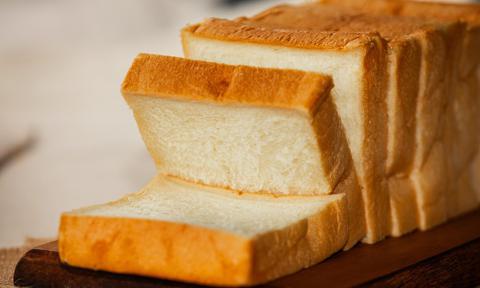
The easy access to information, via the Internet and social media, has led to a lot of misconception about nutrition and diet. We’ve all come across catchy headlines and captions that proclaim certain food groups or activities as the devil for the week. Often taken without context, this information can lead to confusion and spread of misinformation amongst the masses. Sometimes these are propagated through age-old cultural beliefs or individual experience.
So, we contacted expert nutritionist and fitness expert Samreedhi Goel to sort out the facts from the myths that we’ve been believing about our diet and nutrition all this while. Here are all the commonly held beliefs about food and nutrition that have been verified by an expert…
Consuming Less Calories Is A Good Way To Lose Weight
VERDICT: It’s a myth!
While creating a calorie deficit by burning more energy than you’re consuming is a good way to lose weight, it’s important that you’re mindful of the kind of calories you’re consuming or avoiding. “There are good calories and bad calories. It depends on the source of the calories you’re eating,” says Goel, “If you’re eating complex carbohydrates and the right amount of protein, then that would count as good calories. These would fuel your body the right way and help you lose weight faster. It’s not a simple equation of the lesser and lesser you eat, the more weight you lose.”
You Should Go For The ‘Low Fat’ Option, When Selecting Food Items
VERDICT: It’s a myth!
That little nugget of guilt that tends to get assuaged every time you pick up the ‘low fat’ labelled option at the grocery store can make it seem tempting to switch to these products for a seemingly healthier lifestyle. But is it actually a healthier option? Goel vehemently disagrees. “In India, the labelling of foods is not regulated properly. I could be making a samosa which contains 20 percent of fat and making another one that contains 17 percent of fat, marking the latter as ‘low fat’ because in comparison to the former, it has lower percentage of fat. This doesn’t mean it’s a healthy food option for you, especially if you’re trying to diet,” she says. “Even in products that are labelled as ‘refined sugar free’, where they’ve replaced sugar with either honey or jaggery, the calorie levels remain very similar across the board. Also, to substitute the low levels of sweetness with these substitutes, you end up using more of these diet options and it renders the calorie difference useless. This makes the supposed ‘low cal’ option equally harmful to the person’s diet as the regular one. You have to read and understand the labels.”
Breakfast Is The Most Important Meal Of The Day
VERDICT: It’s a fact!
Turns out, you can’t get away with just a coffee and a toast to make up for your breakfast in the morning rush. Eating something in the morning is very important for ensuring a day where you feel healthier and fuller. “I don’t understand people who want to start their day with nothing,” says Goel, “If you’re not a breakfast eater, then I would suggest starting with light stuff, maybe a milkshake.” She insists that you need that fuel in your body to power through the day. If you’re someone who follows intermittent fasting, then she suggests you take your breakfast later in the morning and advises never to skip it.
ALSO READ: 3 Deliciously Nutritious And Easy To Make Breakfast Recipes That Will Brighten Up Your Mornings
High Fat Foods Are Unhealthy
VERDICT: It’s a myth!
This theory has been put to rest by many experts over the years and it’s recommended that your diet should consist of some form of ‘healthy fats’ that could benefit you in the long run. Foods like cheese, eggs, nuts, fish, butter, olive oil etc. can create a feeling of fullness in the body and aid several body functions. “There are many sources of good fat out there but you need to keep in mind that portion control is the key to a healthy lifestyle,” says Goel.
Small And Frequent Meals Is The Healthy Way To Consume Food
VERDICT: It’s a fact!
It’s a proven fact that you can’t lose weight by starving yourself. “You cannot starve and lose weight because it doesn’t mean that you’re losing excess fat, it could be muscular or water weight that is going from your body,” says Goel. Eating small and frequent meals is a good way to ensure your energy levels don’t flag because of hunger throughout the day, and they maintain your diet. “In between meals, you can snack on a fruit or some fibre-rich dry fruits. The principle is that you shouldn’t remain hungry because that won’t let your diet be successful,” she says. “If you’re hungry for longer periods of time, your blood sugar levels will drop. Now your brain won’t listen to you or your diet plan that tells you to avoid junk food. It needs a quick source of energy that could be found in junk food, which you will start craving, thus ending the effectiveness of your diet instantly.”
Carbs Are Evil
VERDICT: It’s a myth!
Carbs have gained a bad rap for being unhealthy for many years because of diet fads. Turns out, that’s not the case! “Our body needs carbs to function properly,” says Goel, “They are a great source of energy and they’re mood enhancers.” She advises, however, to be careful in picking the right kind of carbs for your diet. There are two kinds of carbohydrates: complex and simple. A healthy diet should consist of complex carbohydrates that are minimally processed and have many health benefits. These include potatoes, whole grains, oats, beans, quinoa etc. You need to avoid simple, or refined, carbs like sugar-sweetened beverages, white bread, cakes, and cookies.
You Shouldn’t Eat After 8 PM
VERDICT: It’s a myth!
It’s easily understandable that not everyone has the luxury of planning out their meal times, especially because of the work from home schedules during the pandemic. If you’ve ever been told that you shouldn’t eat post 8 PM at night, because it might lead to weight gain, you can rest assured that it’s just a myth. “The important thing is to keep a gap of at least one or two hours between the time you eat and go to sleep,” says Goel. Your body needs time to digest and process the food and your metabolism can slow down when you’re asleep, leading to a host of digestive issues.
Probiotics Are Your Friends
VERDICT: It’s a fact!
Probiotics can have varying degrees of effectiveness on individuals, but there’s no denying that they’re a necessary addition to your diet for optimal gut health. “It ensures a smoother digestive process,” says Goel, “They don’t have to come in a capsule form, your diet can have natural sources of probiotics like yoghurt.” But she also advises to seek the counsel of your physician if you have doubts about its effectiveness in your daily diet.
Green Tea Helps You Lose Weight By Improving Your Metabolism
VERDICT: It’s a myth!
Raise your hands if you’ve repeatedly checked for the instant appearance of abs while drinking a cup of green tea after a heavy meal. Now put your hands down, you look silly. Despite what the flashy advertisements may promise, green tea is not the magical solution to your weight woes. “It’s just hot water with antioxidants,” says Goel, “At best, it could act as a filler. It has no effect on your body’s metabolism whatsoever.” There you have it.
There Are Food Items Out There That Have Fat Burning Properties
VERDICT: It’s a myth!
Before you set out on a life-altering quest to find out these magical fat burning foods, you should know that you’re being set up for disappointment. “Fat burning in your body happens because of activities, for instance cardiovascular exercises are fat burning activities,” says Goel, “But certain foods act as fuel and enhance your body’s fat burning properties. So it’s not like these foods are directly burning fat, but assisting in the process.” Goel goes on to say that if you eat the right balance of nutrients, in the long run your body will become a fat burning machine.
Brown Rice Is A Healthier Option Than White Rice
VERDICT: It’s a fact!
Though there’s no wrong choice here, brown rice has a little more to offer than white, processed rice. “Brown rice is a healthier option because it contains fibre, “ says Goel, “White rice is processed and the outside layers are removed causing some nutrients to be removed in the process.” According to her, brown rice can also make you feel fuller for a long time, thus preventing over eating. “Yes, it does take some time to develop a taste for brown rice, but once you do you won’t miss eating white rice,” she promises.
Healthier Food Is Expensive
VERDICT: It’s a myth!
You would be surprised to know how affordable and accessible healthy food can be. “The diet foods that have become so popular these days have been in our kitchens since forever. You don’t have to buy into a trend just because it’s popular,” says Goel, “We’re blessed to be born in a country that has a great variety of produce. Our regular vegetables and fruits are enough for a good and healthy diet. You don’t have to spend a fortune to buy healthy food.” Additionally, you can start planning your meals beforehand to be able to regulate your spendings on ingredients and raw materials. Another way to make healthy eating affordable is to cook from scratch rather than buy ready-to-eat meals.
Foods With High Cholesterol Levels Are Unhealthy
VERDICT: It’s a fact!
Cholesterol-rich foods should not be entirely eliminated from your diet as they can be highly nutritious and make you feel fuller for a longer time, but they can be harmful for your heart if you consume them in large quantities. “If you eat one whole egg every day, you’re meeting your body’s cholesterol levels for the day,” says Goel.
Supplementary Nutrients Are Less Healthy Than Natural Nutrients
VERDICT: It’s a myth!
While the importance of a well-rounded and nutritious diet cannot be overstated, supplements can be really beneficial to your health. “Sometimes we need mega doses of certain nutrients which can only be provided via supplements,” says Goel, “So while we can’t solely depend on supplements for our nutrients, taking them in medically prescribed dosages is not harmful at all. For instance, iron deficiency is very common in Indian women, that can be corrected effectively with a balance of iron supplements and a right diet.”
Fruit Contains Fructose And Is Therefore Bad For Your Diet
VERDICT: It’s a myth!
Fruits are a source of good sugar, says Goel. “It gets processed and assimilated in your body very effectively and doesn’t spike up your blood glucose levels,” she says, “It’s the best option if you’re craving something sweet. They are also a good source of fibre.” What’s key here is portion control. If you’re diabetic, then Goel advises seeking out professional guidance for the fruits you can eat and the ones you should avoid.
As long as there’s unlimited access to the internet, misinformation is bound to spread. You need to keep in mind that there are experts out there who can assist you in finding out what’s best for you, especially when it comes to your health. So stay healthy and educated.







